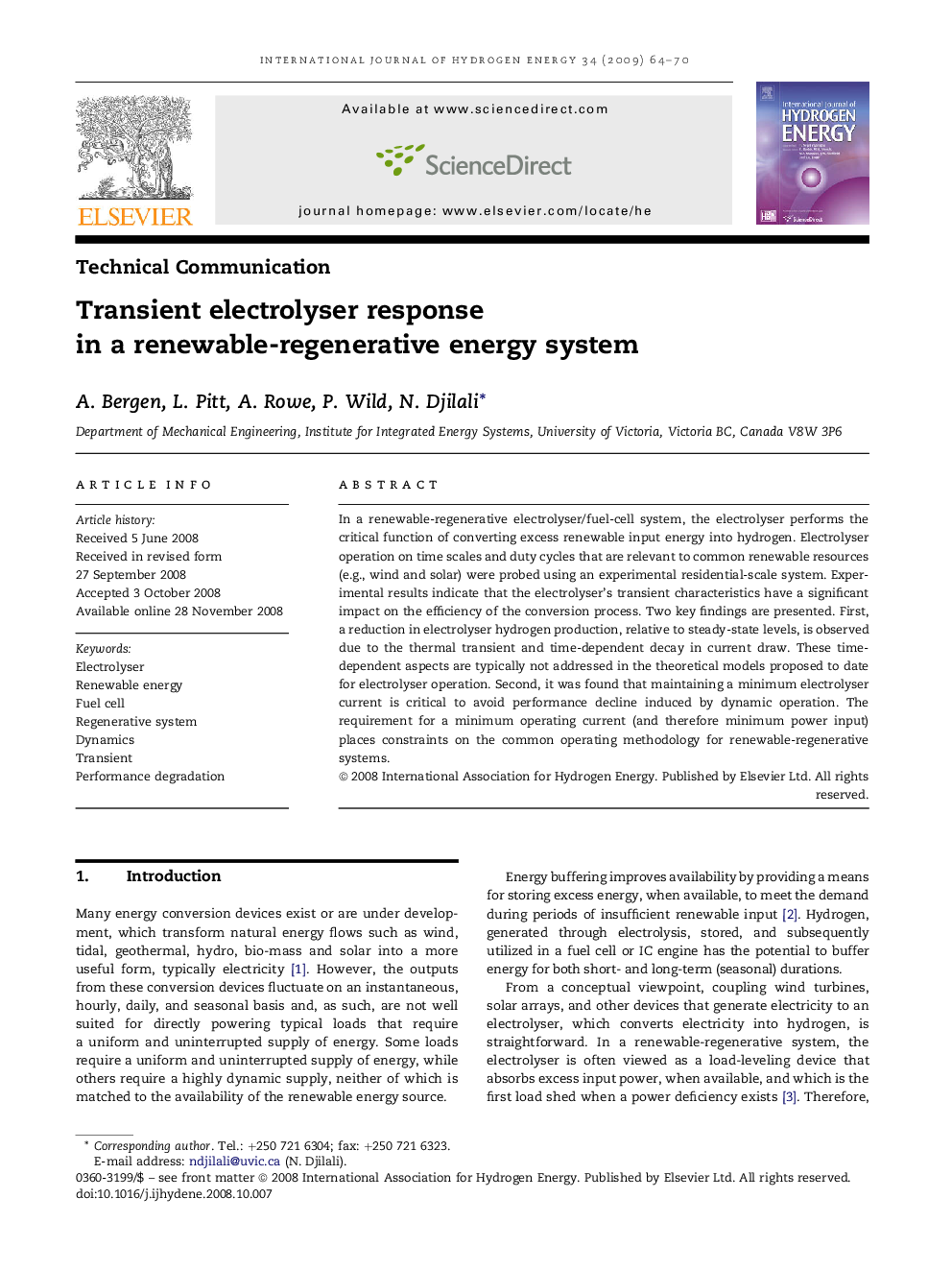| Article ID | Journal | Published Year | Pages | File Type |
|---|---|---|---|---|
| 1278046 | International Journal of Hydrogen Energy | 2009 | 7 Pages |
In a renewable-regenerative electrolyser/fuel-cell system, the electrolyser performs the critical function of converting excess renewable input energy into hydrogen. Electrolyser operation on time scales and duty cycles that are relevant to common renewable resources (e.g., wind and solar) were probed using an experimental residential-scale system. Experimental results indicate that the electrolyser's transient characteristics have a significant impact on the efficiency of the conversion process. Two key findings are presented. First, a reduction in electrolyser hydrogen production, relative to steady-state levels, is observed due to the thermal transient and time-dependent decay in current draw. These time-dependent aspects are typically not addressed in the theoretical models proposed to date for electrolyser operation. Second, it was found that maintaining a minimum electrolyser current is critical to avoid performance decline induced by dynamic operation. The requirement for a minimum operating current (and therefore minimum power input) places constraints on the common operating methodology for renewable-regenerative systems.
